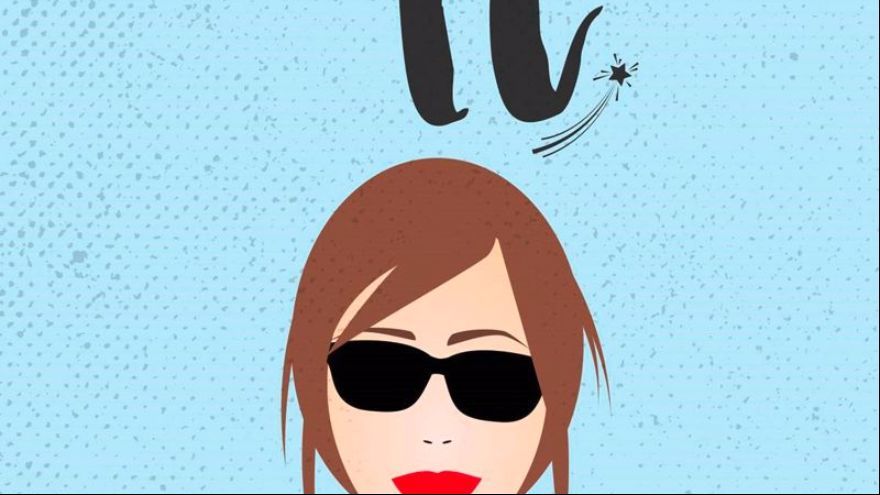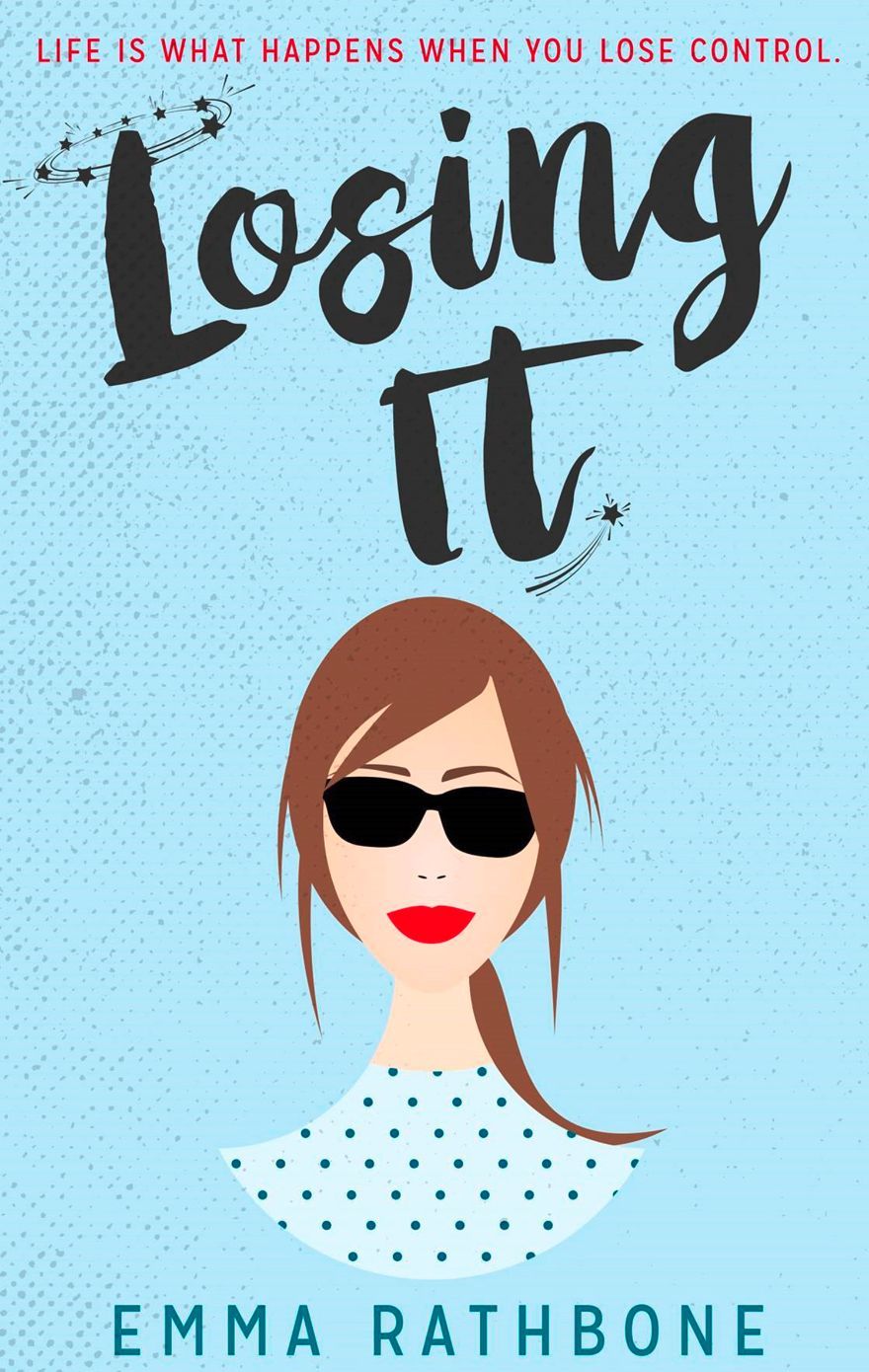Losing It: Romantic Fiction Book Extract

Losing It
by Emma Rathbone
Harlequin Mira Paperback, £8.99
reviewed by Karen Byrom
I sat at my desk and stared at a calendar with a bunch of dancing Tamales on it and played with a little piece of paper and thought about the fact that I was twenty-six and still a virgin.
It’s a tantalising opening to Losing It, an enthralling novel that is so much more than a tale of romance. For Julia’s story is intertwined with her eccentric Aunt Viv’s (not to mention her mother’s own sexual awakening)!
When Julia realises she hasn’t done anything spontaneous since 2003, she decides to take some risks – beginning with leaving her job and moving back with her parents while she decides what to do with her life. But her parents have their own surprise for her in the shape of a lodger so Julia is forced to go and stay with Aunt Viv in North Carolina.
Viv is quirky, spiky, even difficult, but as the two women’s relationship develops, each discovers facets of themselves that they never suspected they had.
A witty, perceptive novel, Losing It draws the reader quickly into Julia and Viv’s lives. It has us cheering for both and hoping for their happy ending –which may or may not necessarily involve finding a man!
Get a flavour of Losing It with this extract from the book, where Julia introduces us to Aunt Viv …
Extract from Losing It
Introducing Aunt Viv
She hummed beautifully when lost in thought, when gardening or absentmindedly putting things away. She pressed firmly into paper when she wrote and had a disarmingly legible signature. She was plump but not slovenly, and had a way of seeming clean and slapped fresh all the time, as if she’d always just stepped out of the shower.
It might have had something to do with her complexion, which blushed easily. Sometimes when entering a room she would cast a cool, queenly gaze around it, and if you didn’t know better you could be forgiven for thinking she had an edge of snobbishness to her. I would remember that day at Alice’s, and how she was holding court with her friends, like the popular one at a girls’ school, and how imperious she looked.
She read with all the sensuality and absorption of a preteen girl, stocking-footed, sliding down the sofa, completely immersed, her hand foraging on the plate of cheese and crackers next to her like something with a life of its own.
She was a survivor
She liked gardening and yanking and patting things down, and you could tell she had grit—like the kind of person who would not freak out on a ship in some survival situation; the kind of person who would sit and watch quietly, taking stock, and only show the chain mail beneath her veneer when an emergency required it. She was a survivor, Aunt Viv. That, I felt, was true, even if sometimes when she laughed it was like the tinkling of simple, pretty light.
She looked more exhausted than a World War One soldier when she got home from work. I watched her once from the top of the stairs when she couldn’t see me. She dropped her bag in place and stared at herself in the hallway mirror. She yanked the little scarf off her neck and hung it on a brass hook; shrugged off her linen blazer and hung that up, too, so she was just wearing a white shirt, a circle at the collar revealing her red chest; pulled her earrings off.
Things she liked doing included letting her face go all soft when listening to music, clapping her hands to rid them of flour, abruptly changing the radio station, ending a conversation with a quick look away from you, dismissing you, always in the process of dismissal—the hair tie she yanked off her head, the rings she hurriedly swiveled off her fingers, shaking her head to banish an unwanted thought, cleaning out the dirt from under her fingernails with efficient scrapes, shucking away layers to be free; all part of some fastidious, ongoing process—shucking, stripping, cleaning, in preparation for some never-reached point. And then sometimes she would stare into the distance with a bewildered expression and my heart would break a little and I wouldn’t know why.
In bed she would be frank and jubilant
She read everything and knew a lot. It would shoot up now and then like a spit of lava and you would get a sense of the craggy knowledge beneath. “Old Dick Crookback,” she said, one afternoon when she got home from work and encountered me on the front porch, reading a book I’d found about Richard the Third. “What?” I said. “That’s what they call him,” she said, “because of his scoliosis.” She looked sad. “He was misunderstood. Such responsibility for an eleven-year-old.” She walked into the house.
Once when I came home from work she was in the garden and called me over and she took my wrist and pressed something into my hand. It was an arrowhead. “See,” she said. It was black and pointed and hard as all get-out.
I knew that in bed she would be frank and jubilant, if she ever had the chance. She would let her hair down next to a campfire. She would squat in the mornings, outside the tent, to make coffee. She would look at a lover across a campfire with all kinds of mischievous understanding. She would be playful, with a wolf-mother protectiveness, and also a lot of fun.
I could see all these things about her, or so it seemed, and yet none of them told me anything; said anything about why she was in the state she was in, why she hadn’t ever been with a man—a more womanly woman seemed to have never existed, and you would agree if you saw her in one of her freshly laundered linen shirts, her chest heaving as she dug for something in the garden, looking up and wiping the sweat from her brow with a gloved wrist, tying her hair up with all this elegant authority. I could picture her waving to someone, a person she loved, in the distance, her alloy of grit and hope shining and shining.
There she was, surrounded by drifts of paper
One day in late June, about a month into my stay, I had to pick her up from work. Her car was in the shop and her offices, in a Victorian house a block from downtown, were more or less on my way home. I parked a couple of streets away and walked there and up the steps and through the creaking front door, into a parlor with boxes stacked up everywhere and packing peanuts on the floor. A sweeping staircase led to the second level, where I could see doors with plaques on them.
“Julia?” called Aunt Viv.
I poked my head into a room and there she was, surrounded by drifts of paper and files stacked up around her. Silvery light came through the windows. Her hair streamed down, tenting her shoulders. She was wearing a long green skirt with a pattern of small flowers and a matching blazer, and her cheeks and the rolls on her neck were dappled with red and she looked too healthy and pulsing to be in this half-lit, paper-logged place.
She saw me looking around. She sighed. “It’s not usually like this,” she said. “We’re changing offices around, everything has to be rearranged.”
“Oh, okay,” I said.
“I’ll just be a second.”
I wandered across the hall into a golden-lit waiting room. There were fresh flowers on a claw-foot coffee table. A woman at the front desk looked at me irritably. Her hair was scraped back into a hard, shiny bun and she was shoving a folder into her bag. “Can I help you?” she said.
“No,” I said. “I’m just waiting for Vivienne.”
“Okay,” she said, relieved.
Smiling a smile that melted his whole face
“That was Melayna,” said Vivienne, as we were walking to my car. A woman with large shopping bags bustled past us.
“What?” I said.
“Melayna,” said Viv. “She’s our new front-desk person. I’m not sure if it’s going to work out.”
“Who?” I said. A car blared techno and zoomed by.
“Melayna,” she said.
And then there was a man standing in front of us, blocking our way. Even though he was about the same height as Viv, maybe an inch shorter, he appeared to be looking up at her from a great distance. He had gray hair, wispy on the top, and was wearing paint-stained jeans and a faded T-shirt. He looked to be around Viv’s age, and was smiling a smile that melted his whole face.
“Gordon!” said Viv, surprised.
“I was just coming to find you,” he said.
“You were?”
He glanced at me.
“This is my niece, Julia,” said Viv.
We shook hands.
“Gordon owns a used- and rare-book shop,” she said to me. “Around the corner. On Green Street.”
“Cool,” I said.
“Just around there,” he said, and pointed. I nodded.
“I’m a ruthless man,” he smiled
There was a pause. Someone down the street opened a jingly door.
“You left your sweater.” He held it up.
“Oh, of course,” said Viv. “Thank you.”
“I did a little more research,” he said. “It turns out a friend of mine in San Francisco has the book you’re talking about. He’s going to send it tomorrow.”
“Great! Thank you, Gordon,” said Viv.
“Remember”—he drummed his fingers together in a cartoonishly nefarious manner—“I have my ways.”
Viv burst out laughing.
“Yes,” she said, “when it comes to out-of-print biographies of long-dead opera singers, you’re the man to see.” She had brightened, and was animated in a way I’d never seen before. She reached up and touched her hair.
“I’ll stop at nothing,” he said. “I’m a ruthless man.”
She laughed through her nose, smiled. “You have to be, in your business,” she said.
“All too true,” he said.
I looked back and forth quickly between them.
“Do you want to— I just made a fresh pot of coffee.” He motioned back toward his store. “You two could join me for a few minutes? I just got some new Audubon prints.” But he didn’t glance over at me.
“Oh, no,” said Viv, laughing, waving her hand. “We have to get home.”
“Sure,” he said, a little crestfallen.
“Thank you,” she said, and held up the sweater. “I’ll be in again soon.”
And we turned and left him standing there.
“I think he likes you”
In the car, on the way home, I glanced over at Viv. She was looking for something in her purse, taking out receipts and arranging them in her hand.
“He seemed nice,” I said.
“I’ve known him for years,” she said, rummaging around. There was still a hint of a smile on her lips.
After a few more moments I got up the nerve to say—even though this wasn’t exactly in the vein of our relationship—“I think he likes you.”
She went still and I felt complicated wheels turning inside her.
Then she said, in an amused, taken-aback manner, “Gordon? No.”
She went back to looking through her purse.
The way she’d turned down his offer, it was like she hadn’t thought it was a real proposition. Her reaction made it seem like he was joking. I thought of the way Gordon’s eyes had darted all over her face when they were talking, as if he was trying to map it.
What if it had gotten to the point where Viv couldn’t see a real possibility when it was in front of her? He was too hesitant to make an actual move because he received all these evasive signals from Viv. And then Viv discounted him because it was never clear if his feelings were real.
I drove along feeling disoriented and thinking about what kind of impressions you can give off without knowing, and if it was possible that whole quadrants of your life could be thrown off by this kind of simple misunderstanding.
Here was someone. They rattled like noisemakers when they were next to each other. If they were both too afraid to make a move, someone else was going to have to do it for them.





